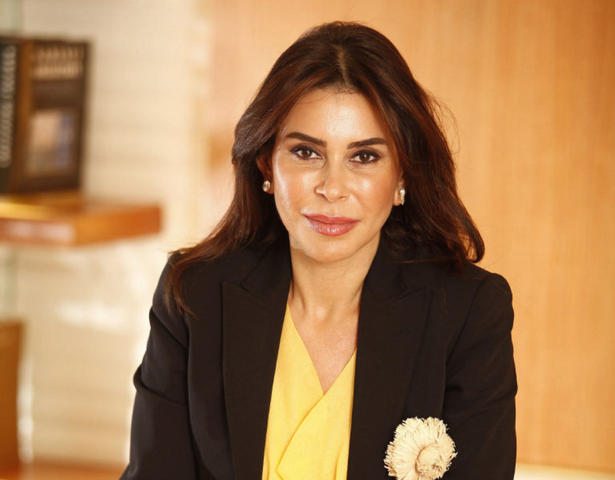By Haroon Siddiqui
ISTANBUL

Turkey has had legal gender equality for nearly a century. It had a female prime minister, Tansu Ciller, long before Germany got Angela Merkel as chancellor. But that doesn’t mean Turkey is no longer patriarchal, any more than Germany is free of entrenched gender discrimination.
So, arriving in this commercial capital of Turkey, I asked to speak to Suzan Sabanci Dinçer, head of the country’s largest financial institution, Akbank. The 46-year-old is the most powerful woman in this Muslim nation of 78 million.
Or perhaps the second most powerful, after cousin Guler Sabanci, 56, head of Sabanci Holdings, the industrial and financial conglomerate (65,000 employees, $13 billion annual revenues) that owns 40 per cent of Akbank.
Neither billionaire fits the cliché of Muslim women. Both are routinely listed among the most influential corporate leaders in the region, and beyond. Both have been honoured for their philanthropy, including for Sabanci University, the best liberal arts institution in Turkey.
Lineage got both where they are. In Canada, sons succeed fathers in business and politics — the Eatons, the Thomsons, the McCains, the Martins, the MacKays, etc. In the Sabanci clan, the women rule.
Guler Sabanci started as a clerk in 1978 and made it to the top in 2004 after the death of her uncle. He chose her over his two brothers and several male offspring. She now presides over operations in 17 countries, including England, “just across from Madame Tussauds; they are nice neighbours, very quiet.”
Suzan Sabanci, an MBA from Boston, worked her way through Akbank, and was managing director for 11 years before being named chair of the board in 2008.
“The real enemy in Turkey is patriarchy, as in many other places, not Islam,” she tells me by email. “My faith teaches me respect and dignity for all people and between the sexes, not subservience.
“Frankly, when I go abroad to meetings of Western senior bankers, I don’t see many other women.”
Women’s equality in Turkey dates back to the establishment of the secular republic in 1923 after the Ottoman Empire. Yet that’s “not always reflected in everyday life,” she says. “Turkish women are under-represented in the workforce,” except perhaps in banks.
“At Akbank, there are more women than men. They’re present in force in middle and senior management. If there’s a single glass ceiling in this bank, I want to know.”
She’s buoyed by the election of a record number of women in last month’s federal election — 78 in a parliament of 550, up from 50. “Of course, we need more.”
As power shifts from the West to the East, Turkey is emerging as a key player. Its elected leaders have asserted civilian control over the army. Its $1 trillion economy has the highest growth in Europe. “Who would’ve thought even three years ago that Turkey would be a better sovereign risk than many European countries or that Europe would be looking to Turkey to help kick-start their sluggish economies?”
Yet the European Union has been stalling Turkey’s entry. That has soured the public mood here. Still, the government and the business community remain committed, says her husband, Haluk Dinçer.
He heads the retail and insurance division of Sabanci Holdings, and is vice-president of the Turkish Industrialists’ and Businessmen’s Association. The Sabancis and the Dinçers are old Istanbul establishment, elements of which are at odds with an emerging, more rural entrepreneurial class that’s religiously conservative, like Prime Minister Tayyip Erodgan.
But not all the tensions are religious or political, notes Dinçer.
“There’s the usual grumbling of the old rich about the new rich. Second, Turkey has got urbanized, quickly — we’re now 70 per cent urban. The city elite are complaining. They are wealthy, they are educated, they speak English, German or French. They get heard, especially by the foreign press.”
That’s it! Dinçer — wealthy himself and highly educated, with an MBA from Chicago — has cut through the media clutter to point to the signs of an upwardly mobile society, where the stultified divisions of the past are crumbling. A democratic space is opening up for a debate on the internal social dynamics of urban vs. rural, “secular” vs. “Islamic,” “real Turks” vs. “non-Turks,” etc.
This sets the stage for Turkey to get to the next level, say both Dinçer and Sabanci, separately.
Besides consolidating economic competitiveness, Turkey must move toward becoming a liberal democracy. That means respecting human rights and the rule of law — and coming to terms with the Kurdish and other minorities.
What Turkey needs is the Canadian constitutionally multicultural model of the equality of all citizens, I tell him. “Yes,” he says, smiling.
Haroon Siddiqui is the Star’s editorial page editor emeritus. His column appears on Thursday and Sunday. hsiddiqui@thestar.ca
via Siddiqui: An Istanbul family defies all clich?s – thestar.com.